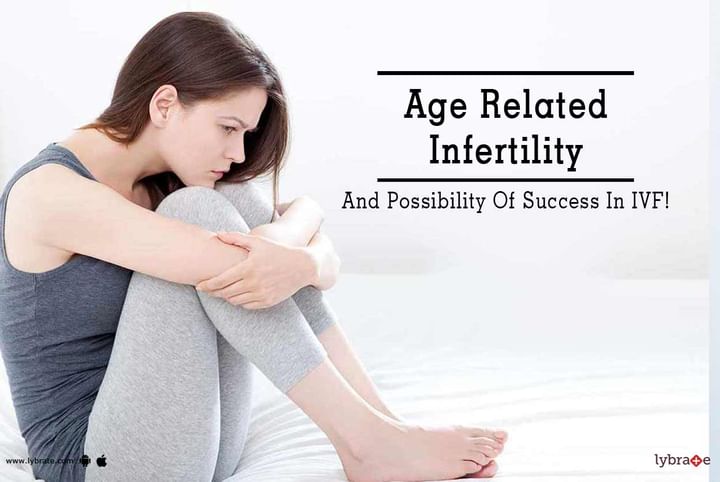Age Related Infertility And Possibility Of Success In IVF!
Age is a major factor affecting one’s ability to conceive and have a healthy baby. Although age-related infertility is more subtle in men, it does happen.
How Men’s Age Affects Fertility?
The effects of age on female fertility have been long known. However, recent studies have revealed that the age of the male partner could also be the reason for infertility.
- Male fertility starts declining around the age of 40-45. That is when the quality of the sperm starts to decrease. The more you age, the lesser are the chances of impregnating and higher are the risks of miscarriage in the female partner.
- In rare cases, it is observed that children of older men are at an increased risk of mental health disorders – Autism, Schizophrenia and the like.
How Women’s Age Affects Fertility?
- Every woman is born with all the eggs she is going to have in her lifetime. The quantity and quality of the eggs become poor as you start ageing. Good health improves the likelihood of getting pregnant but it certainly does not nullify the effects of age on your fertility.
- In the mid-twenties, your chances of conceiving are about 25-30%. Generally, female fertility starts declining in the early 30s and by the time you turn 35, the declining process speeds up. By age 40, your chances of having a baby in any monthly cycle come down to about 5%.
Effect of Age on Pregnancy after One IVF Cycle-
Many people believe that IVF or In Vitro Fertility treatment can help one achieve pregnancy at any age. However, that is not entirely true. Your age has an influence on the success rate of the said treatment. A study conducted in 2014 reveals that women in different age groups had varying success rates.
• Women aged 29 years and younger – 32% chances of success
• Women aged between 30 and 34 years – 26% chances of success
• Women aged between 35 and 39 years – 18% chances of success
• Women aged between 40 and 44 years – 7% chances of success
• Women aged 45 years and older – 0.6% chances of success
For older women, the chances of conceiving increase if eggs donated by younger women are used.
With age, the risk of pregnancy-related complications also increases – miscarriage is the most common one. Another complication is the chance of chromosomal abnormalities in the foetus – this happens usually at the age of 35. Placenta previa, gestational diabetes, and stillbirth are some of the other common complications found in older women.
Last Words-
• Your age determines the success rate of IVF treatment. The older you get, the lower are your chances of getting pregnant.
• IVF success rates drop once you turn 35. Therefore, do not put off the decision.
• If you are in your 40s, a better option will be to use donor eggs.
IVF takes patience. Do not expect results as soon as you start with the treatment. You will likely require a few sessions before you are finally able to conceive. Keep in mind that undergoing IVF treatment is an important decision to make, so do your research meticulously before heading off to the clinic.


+1.svg)
